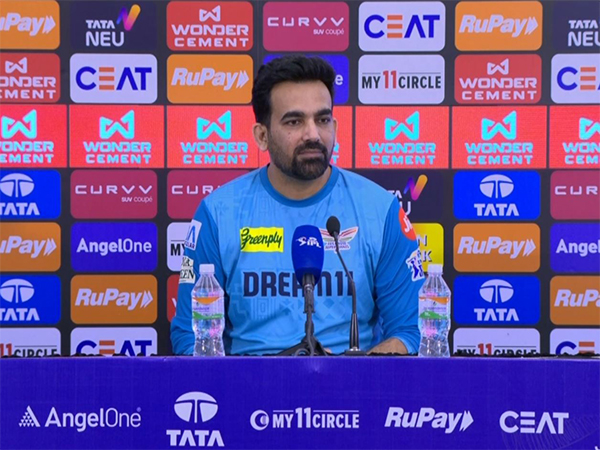75th session of Regional Committee for WHO South-East Asia begins in Bhutan
Sep 05, 2022

Paro [Bhutan], September 5 : The seventy-fifth session of the Regional Committee for WHO South-East Asia commenced in Bhutan on Monday with health leaders emphasizing continued efforts and sustainable recovery from the ongoing COVID-19 pandemic.
Speaking at the inaugural session, the Prime Minister of the Royal Government of Bhutan, Lotay Tshering said, "There are enough lessons for us to know that we cannot do without investing more in health hereafter. Our health system must be more resilient, and accessible and there should be collective actions."
"While the health sector itself is bound for reform, the health of our people is a critical ingredient to make all the reform initiatives a success. Which is why the Regional Committee meeting geared towards improving healthcare services means a lot to us," he added.
The Prime Minister said, "His Majesty Jigme Khesar Namgyel Wangchuck has repeatedly reminded us to use the pandemic to reset ourselves so that the post-pandemic path is literally new for us. Therefore, Bhutan is undergoing historic reform in all public sectors."
Bhutan Health Minister Dechen Wangmo said, "The pandemic has made it clear that health is central to development. The Regional Committee presents us with a unique opportunity to rethink, redesign and rewrite strategies and interventions to accelerate and enhance equitable quality health services and systems for the Region."
In a virtual address, WHO Director-General, Tedros Adhanom Ghebreyesus, said that the pandemic has taught us that health is the most precious commodity on earth which should be cherished and fought for every day.
"The pandemic is not yet over. The virus is still circulating and still changing. If the pandemic has taught us nothing else, it has taught us that health is the most precious commodity on earth. A commodity that must be cherished, prized and fought for every day. Not as a luxury for the privileged, but as a fundamental human right."
"How we, as a Region choose to recover from the COVID-19 crisis, will determine how we protect our many public health achievements, from maintaining our polio-free status to continuing to eliminate NTDs and other diseases on the verge of elimination, be it lymphatic filariasis, kala-azar, trachoma or malaria," said the Regional Director, WHO South-East Asia, Poonam Khetrapal Singh.
"So much is at stake and so much depends on the decisions we make now, and in the weeks and months ahead," she added.
The Regional Director commended the Member countries for their resilience and solidarity during the COVID-19 response, "which must continue to define how we as a Region prepare for, prevent, respond to, and recover from acute public health events".
The Regional Committee is meeting in person for the first time since the start of the COVID-19 pandemic. In addition to strengthening preparedness and response to a public health emergency, the session will deliberate and review other priority health issues, many of them impacted or accentuated by the COVID-19 pandemic.
During the five-day session from September 5 to September 9, a ministerial roundtable will discuss addressing mental health through primary care and community engagement in the Region.
The Regional Director for WHO South-East Asia, Poonam Khetrapal Singh, officials from WHO headquarters, senior officials from health ministries of Member countries, representatives of UN Agencies, partners, donors, and civil society, are participating in the meeting, a WHO press release stated.
Also on the agenda are monitoring progress and acceleration plan for NCDs, including oral health and integrated eye care; accelerating the elimination of cervical cancer; and reviewing progress towards achieving the 2025 end-TB targets.
The high-level deliberations will include achieving Universal Health Coverage, Sustainable Development Goals and health security in the Region through stronger and more comprehensive primary health services, strengthened health workforce education and training, and increasing national capacity and ownership in health information systems and knowledge- and experience-sharing to enhance efficiencies and strengthen people-centred comprehensive primary health care.
The Regional Committee will also review renewed efforts around the eight regional flagship priorities - to eliminate measles and rubella by 2023; address NCDs through multisectoral policies and plans; accelerate the reduction of maternal, neonatal and under-five mortality; advance universal health coverage; reverse antimicrobial resistance; scale-up emergency risk management capacities; and eliminate neglected tropical diseases and TB.
Since the start of the COVID-19 pandemic, this is the first time that the Regional Committee session is being held in person. The last two annual meetings - hosted by Nepal in 2021, and Thailand in 2020 - were virtual.

















